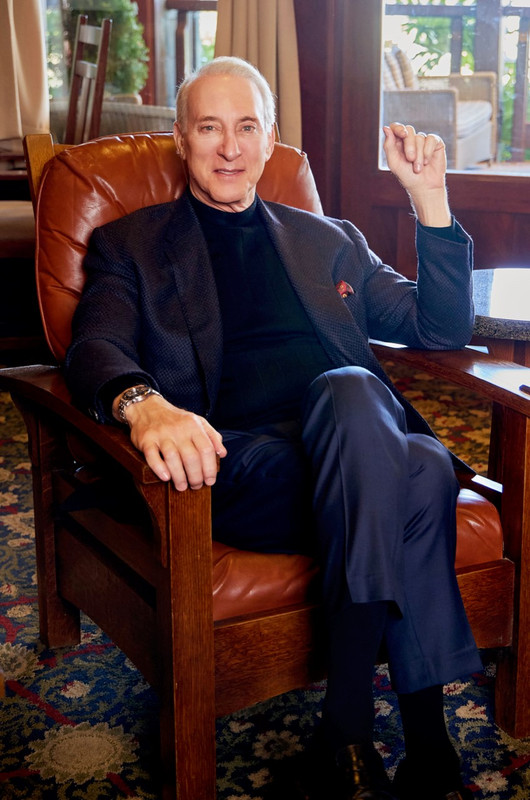
Erwin Jay Shustak is no stranger to complex legal challenges. With nearly 50 years of experience in securities, financial, and business litigation, he has built a career defined by rigor, results, and reason. Yet what sets him apart is not just his expertise in domestic disputes. It’s his commitment to international arbitration, where his legal acumen has proven equally formidable.
We have growing cross-border transactions and globalized business relationships, Shustak’s role as a connector of legal traditions and dispute resolution systems places him in a rare category of transnational practitioners.
From New York Courtrooms to International Arbitration Forums
Shustak began his legal career at Kaye Scholer in New York City, where he was exposed early on to the mechanics of high-level financial disputes. He went on to found Shustak Reynolds & Partners, a boutique firm with offices in New York and California. The firm is nationally recognized for its strength in securities litigation and arbitration. But what is less widely known is how Shustak has quietly extended his influence across borders, especially through his work with global dispute networks like IR Global.
Since 2010, Shustak has been an active member of IR Global, a worldwide legal and professional services network comprising over 155 jurisdictions. Within this community, he has served as a key member of the Disputes Committee, collaborating with lawyers from Europe, Asia, Latin America, and the Middle East.
His participation reflects more than professional prestige. It signals a legal mind that understands the subtleties of global commerce and the need for accessible, fair dispute mechanisms that can serve multinational clients.
A Philosophy of Arbitration Grounded in Practice
For more than 30 years, Shustak has also served as a FINRA arbitrator, often chairing three-member panels that resolve disputes between brokerage firms and public investors. His approach to arbitration is disciplined, practical, and shaped by a deep sense of fairness. This same mindset carries over to international arbitration, where legal cultures, procedural rules, and business expectations often vary significantly.
In cross-border cases, issues of jurisdiction, governing law, and enforceability can complicate even straightforward contractual disputes. Shustak believes that effective arbitration in these settings requires more than legal knowledge. It demands cultural fluency, emotional intelligence, and a readiness to listen.
In IR Global panels and peer discussions, he is known for bridging legal traditions rather than imposing a single vision of practice. His strength lies in finding the common legal thread while respecting jurisdictional differences.
Complex Disputes Without a Passport
Shustak’s global practice has involved disputes related to securities fraud, investment partnership breakdowns, cross-border employment issues, and intellectual property conflicts. In many of these matters, the parties operate across multiple countries. Their disputes are governed by international contracts that call for arbitration in forums such as the ICC, JAMS, or the American Arbitration Association.
Because arbitration proceedings are often confidential, specific case details cannot be disclosed. However, the challenges are clear. Language barriers, discovery limitations, and enforcement questions regularly come into play. Shustak’s approach emphasizes preparation and clarity. His team is known for drafting precise arbitration clauses, anticipating enforcement issues in foreign jurisdictions, and building persuasive narratives that resonate across cultures.
Strategic Partnerships, Not Just Referrals
Participation in IR Global allows Shustak to build lasting relationships with foreign attorneys who share his standards of practice. These partnerships go beyond simple referrals. They foster collaboration on strategy, jurisdictional insight, and procedural adaptation. For clients, this means they receive legal solutions that are not only locally informed but globally aligned.
The strength of these relationships was on full display at the IR Global Mid-Year Conference, held in San Diego. As host and speaker, Shustak delivered remarks that underscored the value of mutual respect and shared ethics in international legal cooperation. The fact that he was nominated as a finalist for IR Global’s Member of the Year speaks to how deeply he is regarded by peers across the world.
Responding to the Demands of Modern Business
International arbitration is no longer a niche domain. As companies expand across borders and investors engage in complex cross-border ventures, the demand for credible, efficient dispute resolution is rising. Courts in many jurisdictions are slow, opaque, or politically constrained. Arbitration offers speed, flexibility, and privacy, benefits that Shustak has long recognized and refined in practice.
Yet he does not view arbitration as a panacea. It must be structured, fair, and capable of adapting to new industries, such as blockchain, digital assets, and global compliance regimes. In his advisory role, Shustak encourages businesses to rethink boilerplate contracts, ensure alignment with international arbitration norms, and invest in proactive legal structuring that reduces future friction.
Lessons for In-House Counsel and International Clients
For in-house legal teams working with international subsidiaries, joint ventures, or third-party suppliers, Shustak’s practice offers a roadmap. His method involves early risk assessment, rigorous clause drafting, and ongoing dialogue with local counsel. He encourages businesses to think of arbitration not as a fallback, but as a frontline strategy.
He also cautions against relying solely on domestic templates in cross-border deals. In his view, many legal disputes stem from poor document architecture rather than fundamental disagreements. International business demands legal infrastructure that anticipates complexity. That is where Shustak’s global experience becomes most valuable.